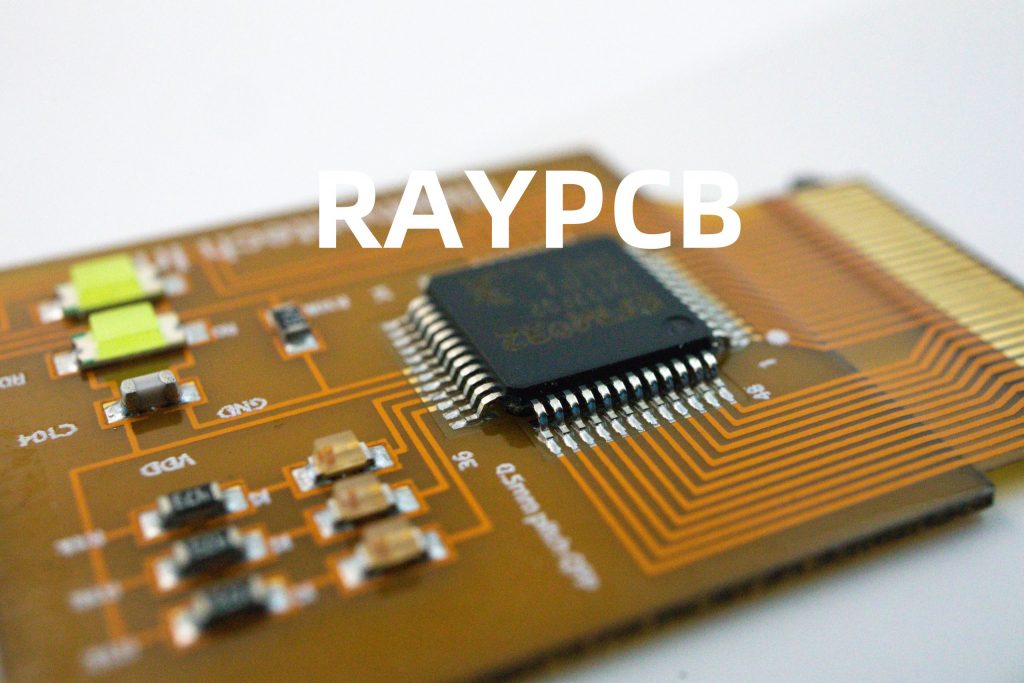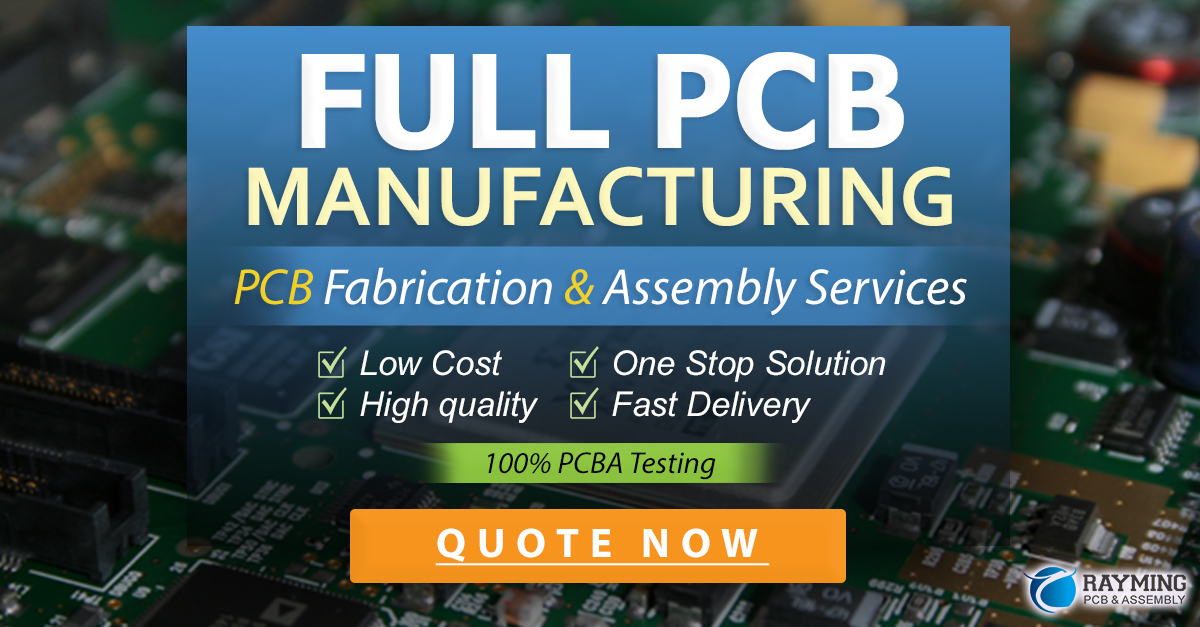The Importance of PCBs in Electronics Manufacturing
PCBs are the backbone of modern electronic devices. These thin, flat boards are designed to mechanically support and electrically connect electronic components using conductive pathways, tracks, or signal traces etched from copper sheets laminated onto a non-conductive substrate. PCBs are essential for several reasons:
- Compact Design: PCBs allow for the miniaturization of electronic devices by providing a compact and efficient way to connect components.
- Reliability: Well-designed and manufactured PCBs ensure reliable connections and minimize the risk of short circuits or component failures.
- Mass Production: PCBs enable the mass production of electronic devices, reducing costs and increasing efficiency.
- Customization: PCBs can be customized to suit specific applications and requirements, allowing for flexibility in product design.
Overview of the Canadian PCB Manufacturing Industry
The Canadian PCB manufacturing industry has a strong presence in the global market, with several companies offering high-quality PCB Fabrication and assembly services. The industry is known for its:
- Skilled workforce: Canada has a highly educated and skilled workforce, with expertise in electronics manufacturing and PCB design.
- Advanced technology: Canadian PCB manufacturers invest in state-of-the-art equipment and processes to ensure the production of high-quality boards.
- Quality standards: Many Canadian PCB manufacturers adhere to international quality standards, such as ISO 9001, ISO 14001, and IATF 16949, ensuring consistent quality and reliability.
- Industry diversity: Canadian PCB manufacturers serve a wide range of industries, including automotive, aerospace, medical, telecommunications, and consumer electronics.

Top PCB Manufacturers in Canada
1. Enigma Interconnect
Website: https://enigmacorp.com/
Location: Burnaby, British Columbia
Capabilities:
– High-density interconnect (HDI) PCBs
– Rigid and Flexible PCBs
– Multilayer boards (up to 30 layers)
– Blind and buried vias
– Controlled impedance
– Quick-turn prototyping
Industries Served:
– Aerospace and defense
– Medical devices
– Telecommunications
– Industrial electronics
– Automotive
2. Candor Industries
Website: https://candorind.com/
Location: Toronto, Ontario
Capabilities:
– Single and double-sided PCBs
– Multilayer boards (up to 12 layers)
– Copper thicknesses up to 10 oz.
– Solder mask and silkscreen
– Lead-free and RoHS compliant
– Quick-turn prototyping
Industries Served:
– Automotive
– Telecommunications
– Consumer electronics
– Industrial controls
– Medical devices
3. Bittele Electronics
Website: https://www.7pcb.com/
Location: Markham, Ontario
Capabilities:
– Multilayer boards (up to 22 layers)
– HDI and Flex-Rigid PCBs
– Blind and buried vias
– Impedance Control
– Soldermask and silkscreen
– Lead-free and RoHS compliant
Industries Served:
– Automotive
– Aerospace and defense
– Medical devices
– Industrial controls
– Consumer electronics
4. TTM Technologies
Website: https://www.ttmtech.com/
Location: Kanata, Ontario
Capabilities:
– Multilayer boards (up to 24 layers)
– Rigid, flexible, and flex-rigid PCBs
– HDI and microvias
– Controlled impedance
– Soldermask and silkscreen
– Lead-free and RoHS compliant
Industries Served:
– Aerospace and defense
– Automotive
– Medical devices
– Telecommunications
– Industrial electronics
5. EvidAsia Electronics Inc.
Website: https://www.evidasia.com/
Location: Richmond Hill, Ontario
Capabilities:
– Single and double-sided PCBs
– Multilayer boards (up to 8 layers)
– Blind and buried vias
– Soldermask and silkscreen
– Lead-free and RoHS compliant
– Quick-turn prototyping
Industries Served:
– Automotive
– Industrial controls
– Consumer electronics
– Medical devices
– Telecommunications

Choosing the Right PCB Manufacturer in Canada
When selecting a PCB manufacturer in Canada, consider the following factors:
- Capabilities: Ensure that the manufacturer can accommodate your specific PCB Requirements, such as layer count, materials, and special features like HDI or controlled impedance.
- Quality Standards: Look for manufacturers that adhere to international quality standards, such as ISO 9001, ISO 14001, and IATF 16949, to ensure consistent quality and reliability.
- Industry Experience: Choose a manufacturer with experience in your specific industry, as they will better understand your unique requirements and challenges.
- Lead Times: Consider the manufacturer’s lead times and their ability to meet your delivery schedules, especially for time-sensitive projects.
- Customer Support: Evaluate the level of customer support offered by the manufacturer, including communication, technical assistance, and problem-solving capabilities.
The Advantages of Working with Canadian PCB Manufacturers
Partnering with a Canadian PCB manufacturer offers several benefits:
- Proximity: Working with a local manufacturer reduces shipping times and costs, enabling faster project turnaround and improved communication.
- Quality: Canadian PCB manufacturers are known for their commitment to quality, adhering to strict standards and employing skilled professionals.
- Intellectual Property Protection: Canada has strong intellectual property laws, ensuring that your designs and innovations are well-protected.
- Regulatory Compliance: Canadian manufacturers are well-versed in international regulations and standards, such as RoHS and REACH, ensuring that your PCBs meet global requirements.
- Customization: Many Canadian PCB manufacturers offer flexible manufacturing options, allowing for customization to suit your specific needs.
PCB Design Considerations for Successful Manufacturing
To ensure the smooth manufacturing of your PCBs, keep these design considerations in mind:
- Design for Manufacturing (DFM): Follow DFM guidelines provided by your chosen manufacturer to avoid potential issues during fabrication and assembly.
- Material Selection: Choose appropriate materials for your PCB based on the intended application, environmental factors, and cost considerations.
- Component Placement: Optimize component placement to minimize signal interference, improve thermal management, and enhance manufacturability.
- Signal Integrity: Consider signal integrity issues, such as crosstalk and impedance control, to ensure reliable performance of your PCB.
- Testing and Inspection: Incorporate appropriate testing and inspection points in your PCB design to facilitate quality control and troubleshooting.
The Future of PCB Manufacturing in Canada
The Canadian PCB manufacturing industry is well-positioned for growth, driven by several factors:
- Technological Advancements: As electronic devices become more sophisticated and compact, the demand for advanced PCBs, such as HDI and flex-rigid boards, is expected to increase.
- 5G and IoT: The rollout of 5G networks and the growth of the Internet of Things (IoT) will fuel the demand for high-performance PCBs in various industries.
- Automation and Industry 4.0: The adoption of automated manufacturing processes and Industry 4.0 technologies will enhance the efficiency and competitiveness of Canadian PCB manufacturers.
- Sustainable Practices: Canadian PCB manufacturers are increasingly focusing on sustainable practices, such as the use of eco-friendly materials and waste reduction initiatives, to meet growing environmental concerns.
FAQs about PCB Manufacturing in Canada
Q1: How long does it typically take to manufacture PCBs in Canada?
A1: Lead times for PCB manufacturing in Canada vary depending on the complexity of the design, the chosen manufacturer, and the order quantity. Prototype orders can often be completed within 5-10 business days, while larger production runs may take several weeks.
Q2: Are Canadian PCB manufacturers able to produce both prototype and production quantities?
A2: Yes, most Canadian PCB manufacturers offer services for both prototype and production quantities. Some manufacturers specialize in quick-turn prototyping, while others focus on high-volume production runs.
Q3: Do Canadian PCB manufacturers offer assembly services as well?
A3: Many Canadian PCB manufacturers provide both PCB fabrication and assembly services, offering a one-stop solution for your electronics manufacturing needs. However, some manufacturers may specialize in only fabrication or assembly, so it’s essential to check their specific capabilities.
Q4: What certifications should I look for when choosing a Canadian PCB manufacturer?
A4: When selecting a Canadian PCB manufacturer, look for certifications such as ISO 9001 (quality management), ISO 14001 (environmental management), and IATF 16949 (automotive quality management). These certifications demonstrate the manufacturer’s commitment to quality, reliability, and environmental responsibility.
Q5: Can Canadian PCB manufacturers produce boards that meet international standards, such as RoHS and REACH?
A5: Yes, most Canadian PCB manufacturers are well-versed in international standards and regulations, such as RoHS (Restriction of Hazardous Substances) and REACH (Registration, Evaluation, Authorization, and Restriction of Chemicals). They can produce PCBs that comply with these standards, ensuring that your products meet global requirements.
Conclusion
Canada boasts a robust and diverse PCB manufacturing industry, with numerous companies offering high-quality fabrication and assembly services. By understanding the capabilities, strengths, and specializations of Canadian PCB manufacturers, you can make an informed decision when selecting a partner for your electronics manufacturing needs. Working with a Canadian PCB manufacturer offers advantages such as proximity, quality, intellectual property protection, regulatory compliance, and customization options.
To ensure the success of your PCB projects, consider factors such as manufacturer capabilities, quality standards, industry experience, lead times, and customer support when making your choice. Additionally, follow best practices in PCB design, including DFM guidelines, material selection, component placement, signal integrity considerations, and testing and inspection points.
As the electronics industry continues to evolve, the Canadian PCB manufacturing sector is well-positioned to adapt and grow, driven by technological advancements, the rise of 5G and IoT, automation and Industry 4.0 adoption, and a focus on sustainable practices. By partnering with a reliable Canadian PCB manufacturer, you can bring your electronic innovations to life while benefiting from the country’s skilled workforce, advanced technology, and commitment to quality.
Tables
Here are two summary tables to visualize the key information about the top PCB manufacturers in Canada:
Table 1: Capabilities of Top PCB Manufacturers in Canada
| Manufacturer | Layers | Types | Special Features |
|---|---|---|---|
| Enigma Interconnect | Up to 30 | Rigid, Flexible | HDI, Blind/Buried Vias, Controlled Impedance |
| Candor Industries | Up to 12 | Single, Double-sided | Thick Copper, Soldermask, Silkscreen |
| Bittele Electronics | Up to 22 | Multilayer, HDI, Flex-rigid | Blind/Buried Vias, Impedance Control |
| TTM Technologies | Up to 24 | Rigid, Flexible, Flex-rigid | HDI, Microvias, Controlled Impedance |
| EvidAsia Electronics Inc. | Up to 8 | Single, Double-sided | Blind/Buried Vias, Soldermask, Silkscreen |
Table 2: Industries Served by Top PCB Manufacturers in Canada
| Manufacturer | Aerospace & Defense | Automotive | Medical | Telecom | Industrial | Consumer |
|---|---|---|---|---|---|---|
| Enigma Interconnect | ✓ | ✓ | ✓ | ✓ | ✓ | |
| Candor Industries | ✓ | ✓ | ✓ | ✓ | ✓ | |
| Bittele Electronics | ✓ | ✓ | ✓ | ✓ | ✓ | |
| TTM Technologies | ✓ | ✓ | ✓ | ✓ | ✓ | |
| EvidAsia Electronics Inc. | ✓ | ✓ | ✓ | ✓ | ✓ |

No responses yet